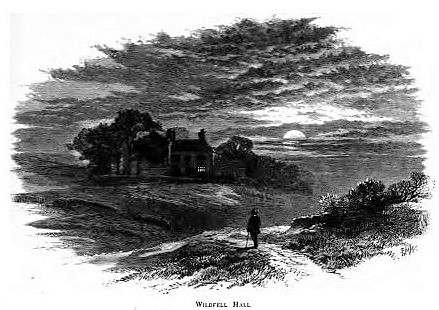 Brontë’s Wildfell Hall is a romantic potboiler. Helen Huntingdon, a good woman, married to an abusive man, Arthur Huntingdon, an abusive husband, runs away and takes the name, Helen Graham. At Wildfell Hall, Graham meets Gilbert Markham, who immediately falls in...
Brontë’s Wildfell Hall is a romantic potboiler. Helen Huntingdon, a good woman, married to an abusive man, Arthur Huntingdon, an abusive husband, runs away and takes the name, Helen Graham. At Wildfell Hall, Graham meets Gilbert Markham, who immediately falls in...
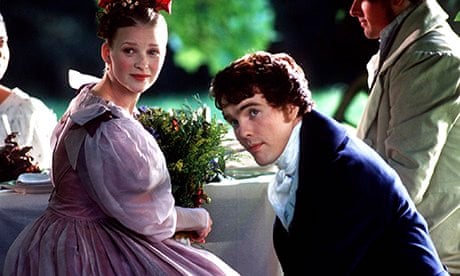 “Blissful” is Dickens’s word to describe Copperfield’s tenderest memories of Dora Spenlow’s picnic birthday party. He’s about nineteen and obsessed, getting up before 6 AM to buy flowers, so they are fresh. The picnic is near...
“Blissful” is Dickens’s word to describe Copperfield’s tenderest memories of Dora Spenlow’s picnic birthday party. He’s about nineteen and obsessed, getting up before 6 AM to buy flowers, so they are fresh. The picnic is near...
 James Jacques Joseph Tissot’s La Partie carrée, aka The Foursome, is more sexually suggestive than the English title indicates. The French title Partie Carrée suggests a sexual tryst and alludes to Édouard Manet’s The Luncheon on the Grass (1863)....
James Jacques Joseph Tissot’s La Partie carrée, aka The Foursome, is more sexually suggestive than the English title indicates. The French title Partie Carrée suggests a sexual tryst and alludes to Édouard Manet’s The Luncheon on the Grass (1863)....
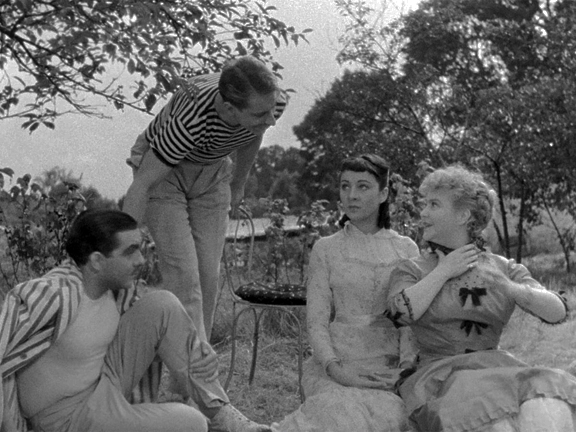 Maupassant uses the phrase une partie de campagne as a euphemism for an outdoor picnic. It’s a sad story about a romantic love that fizzles during a holiday celebrating a birthday, when the Dufours, a middle-class Parisian family, spend a day along the Seine at the...
Maupassant uses the phrase une partie de campagne as a euphemism for an outdoor picnic. It’s a sad story about a romantic love that fizzles during a holiday celebrating a birthday, when the Dufours, a middle-class Parisian family, spend a day along the Seine at the...
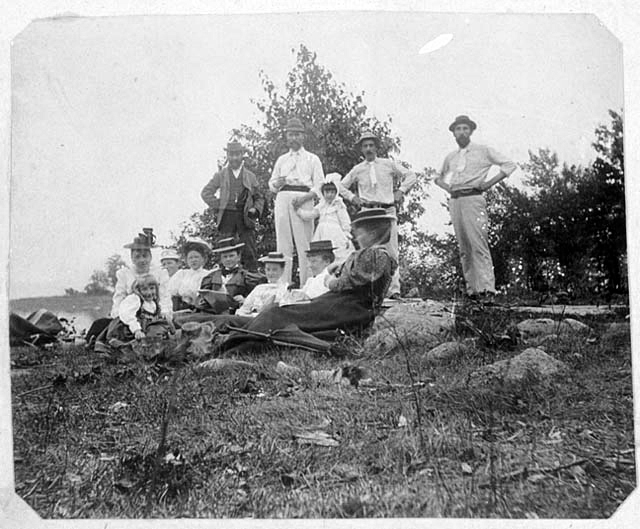 “People do all sorts of things at picnics” is Howells’s paradoxical foreshadowing of a love match that begins on a picnic on the rocky shore of the Bay of Fundy and then goes wrong. Though the picnickers are convivial, they mask their feelings, at...
“People do all sorts of things at picnics” is Howells’s paradoxical foreshadowing of a love match that begins on a picnic on the rocky shore of the Bay of Fundy and then goes wrong. Though the picnickers are convivial, they mask their feelings, at...
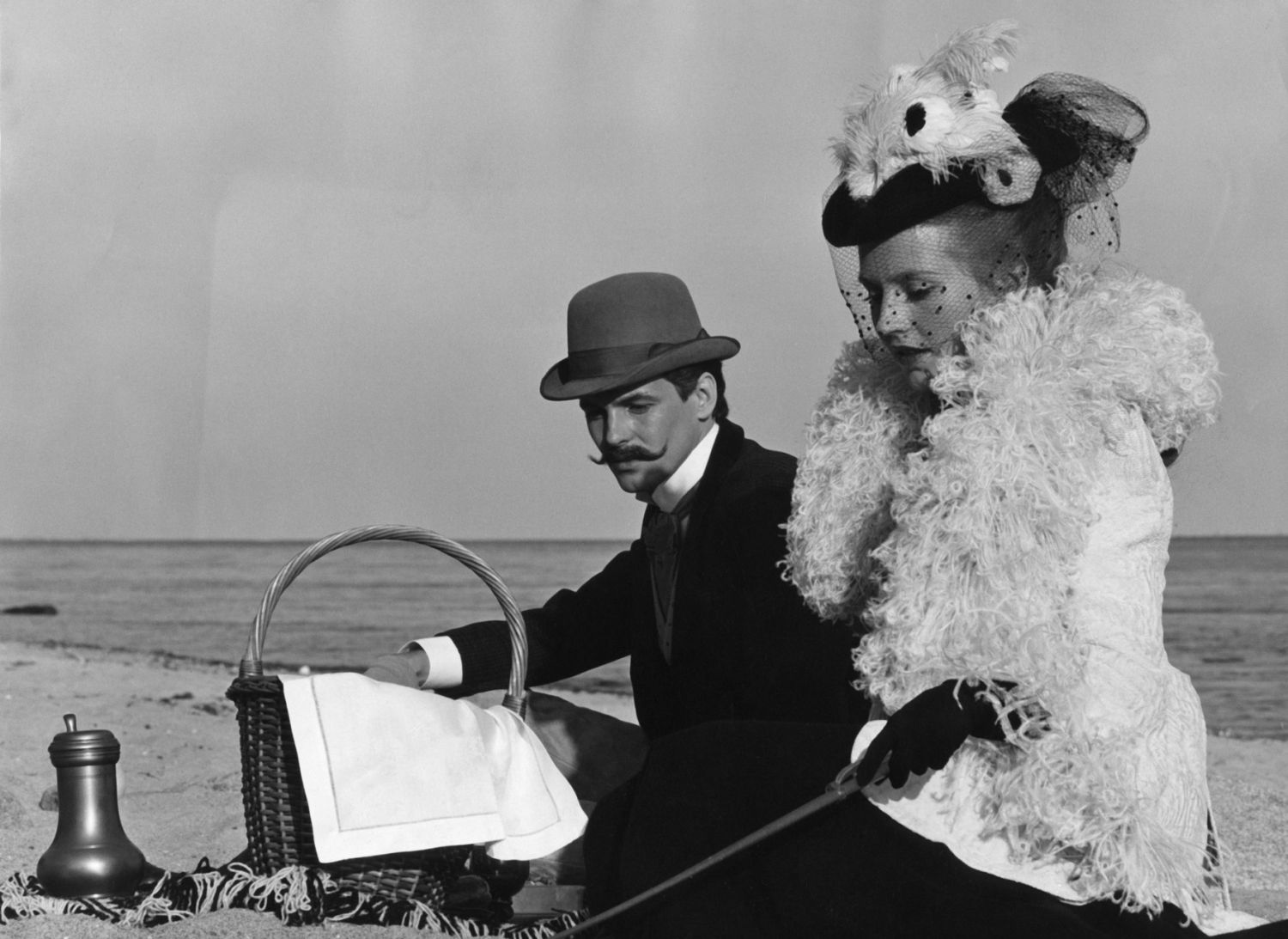 Fontane’s take on adultery in Effi Briest is a long, long sad story hinging on a beach-picnic-love affair. At first, it’s a recreational outing for Effi Briest and a friend, Major von Crampas. But soon, the recreation becomes a cover for lust. Though...
Fontane’s take on adultery in Effi Briest is a long, long sad story hinging on a beach-picnic-love affair. At first, it’s a recreational outing for Effi Briest and a friend, Major von Crampas. But soon, the recreation becomes a cover for lust. Though...
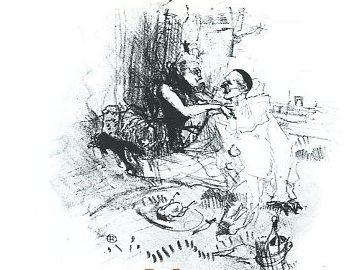 Le Pique-Nique was probably not Toulouse-Lautrec’s title because the French did not use pique-nique for such a meal. The subject is the Pierrot, the sad-sack clown, with whom Lautrec identified as a man who does not get the genuine affection of the woman he loves....
Le Pique-Nique was probably not Toulouse-Lautrec’s title because the French did not use pique-nique for such a meal. The subject is the Pierrot, the sad-sack clown, with whom Lautrec identified as a man who does not get the genuine affection of the woman he loves....
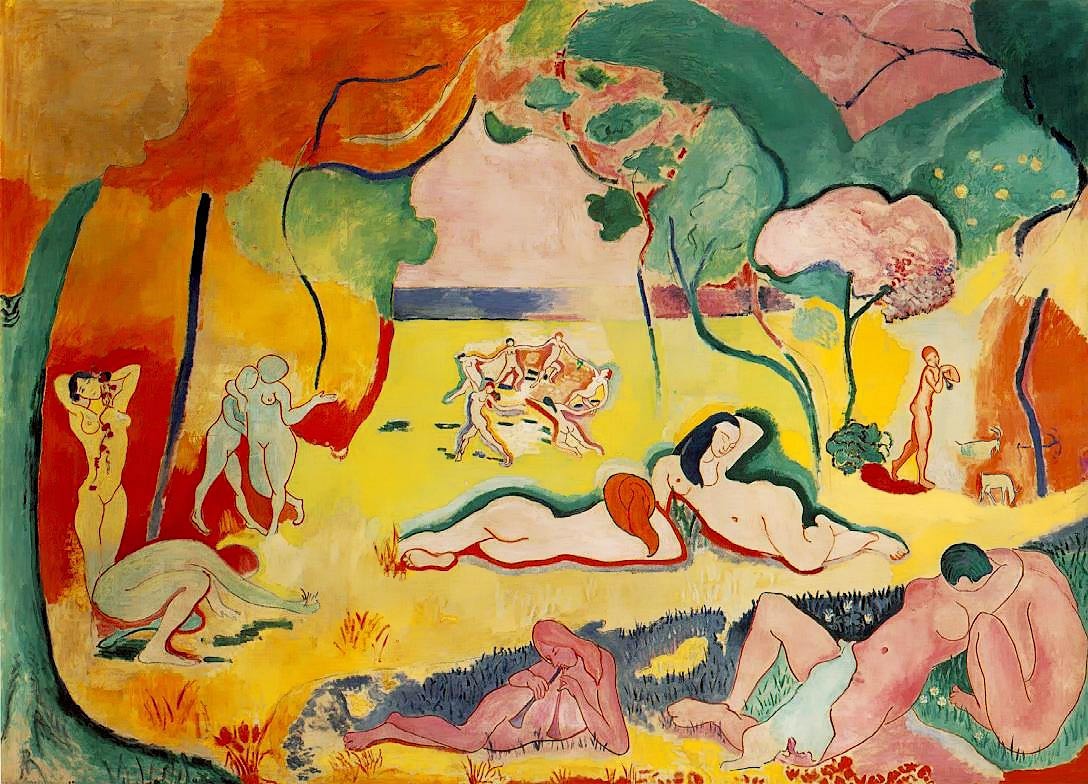 Matisse completed The Joy of Life [Le Bonheur de Vivre] (1905-1906), a lovers’ picnic in a garden. There is a cloth, though there is neither food nor drink. Who was it that said, “Love is not all: it is not meat nor drink”? [Also see Matisse’s Calm, Luxury, and...
Matisse completed The Joy of Life [Le Bonheur de Vivre] (1905-1906), a lovers’ picnic in a garden. There is a cloth, though there is neither food nor drink. Who was it that said, “Love is not all: it is not meat nor drink”? [Also see Matisse’s Calm, Luxury, and...
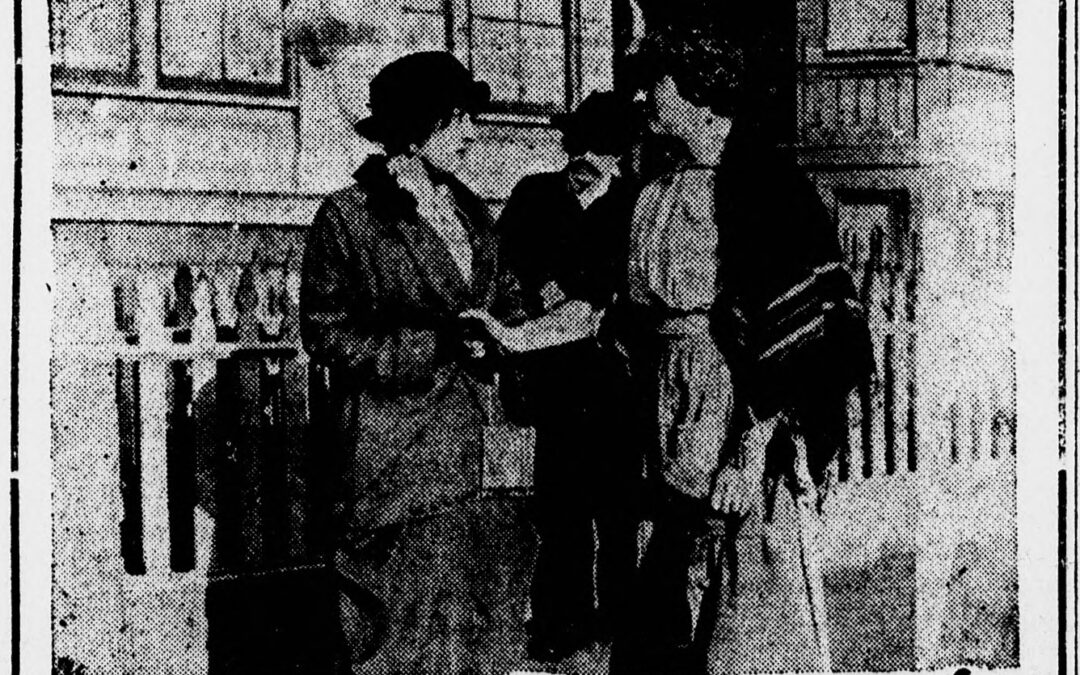 Picnicking sandwiches and much more food play an important part in the courtship of Billy Roberts, a wagon driver, and Saxon Brown, a laundress, in Jack London’s Valley of the Moon. Intending to propose marriage, Billy and Saxon drive into the hills beyond...
Picnicking sandwiches and much more food play an important part in the courtship of Billy Roberts, a wagon driver, and Saxon Brown, a laundress, in Jack London’s Valley of the Moon. Intending to propose marriage, Billy and Saxon drive into the hills beyond...
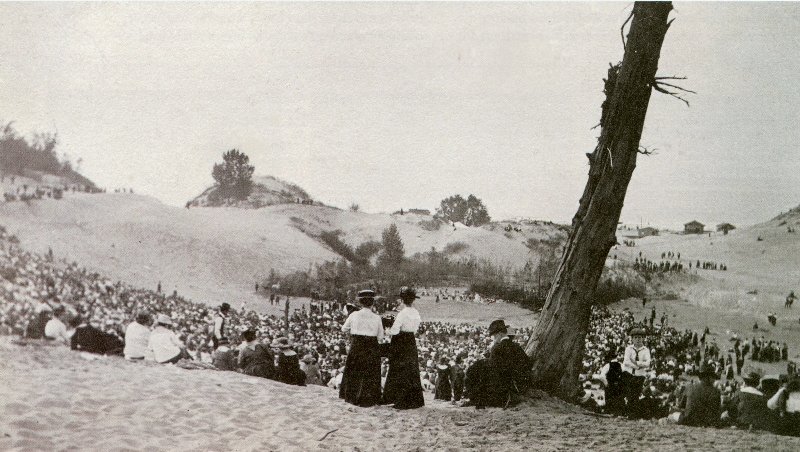 Fanny Brandeis is a new woman, whose career comes first, and when Clarence Heyl, an unacknowledged suitor, asks her to picnic, she says that she’s so busy working that she has forgotten how. But the next morning, Fanny is sitting in a train heading out from...
Fanny Brandeis is a new woman, whose career comes first, and when Clarence Heyl, an unacknowledged suitor, asks her to picnic, she says that she’s so busy working that she has forgotten how. But the next morning, Fanny is sitting in a train heading out from...











